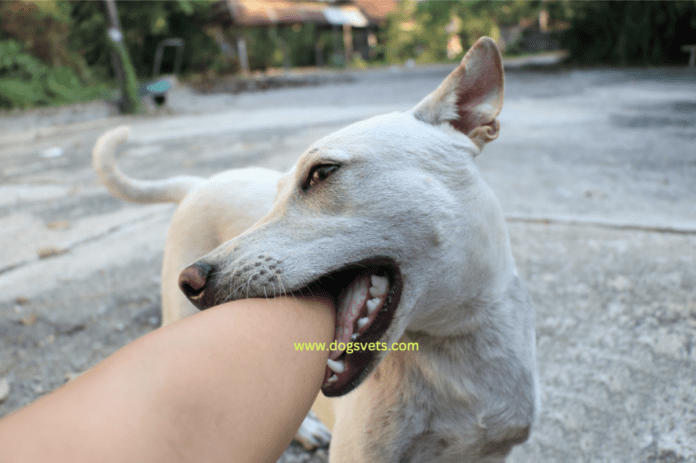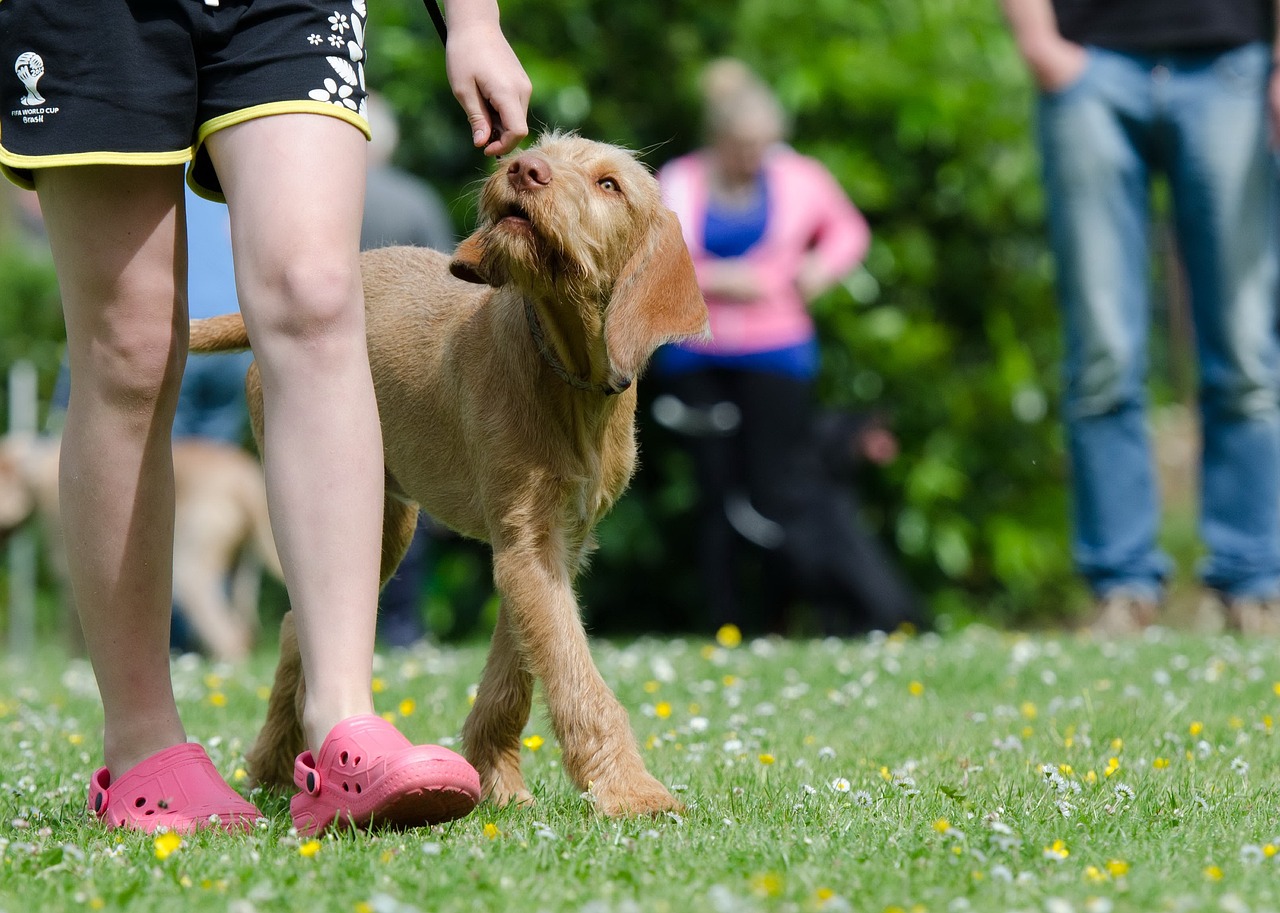Last Updated on July 21, 2023 by Dogs Vets
How to Train a Dog Not to Bite 7 Training Tips
Training a dog not to bite is an important step in responsible pet ownership. Biting can be a serious issue, not only for the safety of others, but for the well-being of the dog as well.
A biting dog may be at risk of being given up to a shelter or euthanized.
Here are some tips for training your dog not to bite:
- Socialize your dog early on. The more exposure your dog has to different people, places, and situations, the less likely they will be to feel threatened and bite.
- Use positive reinforcement. Reward your dog with treats and praise when they display good behavior, such as not biting.
- Never hit or yell at your dog for biting. This will only teach them to be afraid of you and may lead to more aggressive behavior.
- Use a “time-out” as a consequence for biting. If your dog bites, immediately remove them from the situation and do not give them any attention for a short period of time.
- Train your dog to “drop it” and “leave it.” These commands can be used to teach your dog to let go of objects, including fingers, that they may be inclined to bite.
- Use a taste deterrent spray on objects that your dog tends to bite. This will help teach them that biting is unpleasant.
- Consult a professional dog trainer or behaviorist if you are having difficulty training your dog not to bite. They can provide additional guidance and support.
Questions People are Asking
1. How do I socialize my dog to prevent biting?
Socializing your dog involves exposing them to different people, places, and situations in a controlled and positive manner. This can be done through puppy socialization classes, taking your dog on walks in different neighborhoods, and inviting people over to your home to interact with your dog.
2. Is it okay to hit my dog if they bite?
No, it is never okay to hit or physically discipline your dog for biting or any other behavior. Physical punishment can lead to fear and aggression in dogs, and is not an effective way to train them.
3. How do I use positive reinforcement to train my dog not to bite?
To use positive reinforcement to train your dog not to bite, reward them with treats and praise when they display good behavior, such as not biting. This will help reinforce the desired behavior and make it more likely that they will repeat it in the future.
4. What should I do if my dog bites someone?
If your dog bites someone, it is important to remain calm and take immediate action.
Apologize to the person who was bitten and offer to pay for any medical expenses.
If the bite was severe or unprovoked, it may be necessary to report the incident to the authorities. Consult a professional dog trainer or behaviorist to help address the underlying issue and prevent future biting.
5. How can I teach my dog to “drop it” and “leave it”?
To teach your dog to “drop it,” start by holding a treat in your hand and allowing your dog to smell it. Close your hand around the treat and say “drop it.”
When your dog releases the treat from their mouth, immediately give them the treat and praise them. To teach “leave it,” place a treat on the ground and say “leave it.”
If your dog tries to take the treat, cover it with your hand and say “leave it” again. When they stop trying to take the treat, reward them with a different treat and praise.
6. What is a taste deterrent spray and how do I use it?
7. When should I consult a professional dog trainer or behaviorist?
If you are having difficulty training your dog not to bite, or if you are unsure of how to address a biting issue, it may be helpful to consult a professional dog trainer or behaviorist.
These professionals are trained to identify the root cause of problem behaviors and provide guidance on how to correct them.
8. Is it possible to completely eliminate biting in a dog?
It is not realistic to expect that a dog will never bite under any circumstances. All animals, including humans, may bite in self-defense or as a result of extreme fear or pain.
However, it is possible to significantly reduce the likelihood of biting through proper training and socialization.
9. Are certain breeds more prone to biting than others?
Some breeds may have a reputation for being more prone to biting, but it is important to remember that any breed of dog can bite under the right circumstances.
Factors such as early socialization, proper training, and responsible ownership play a much larger role in a dog’s likelihood to bite than breed alone.
10. How can I protect myself and others from a biting dog?
To protect yourself and others from a biting dog, follow these precautions:
- Do not approach a dog that is growling or showing aggressive body language.
- Do not try to touch a dog that is eating, sleeping, or caring for puppies.
- Do not disturb a dog that is playing with a toy or bone.
- Do not make direct eye contact with a dog that appears aggressive.
- If a dog approaches you in an aggressive manner, try to remain calm and avoid running or screaming. Instead, try to put an object between yourself and the dog, such as a chair or umbrella, and slowly back away.
Fact Check
We hope you enjoyed reading this article. What are your thoughts on the topic?
“At [Dogsvets.com], our goal is to bring you the most accurate and up-to-date information on all things pet-related.
If you have any additional insights or would like to advertise with us, don’t hesitate to get in touch.
If you notice any errors or discrepancies in our content, please let us know so we can correct them.
We welcome your feedback and encourage you to share this article with others.”

















